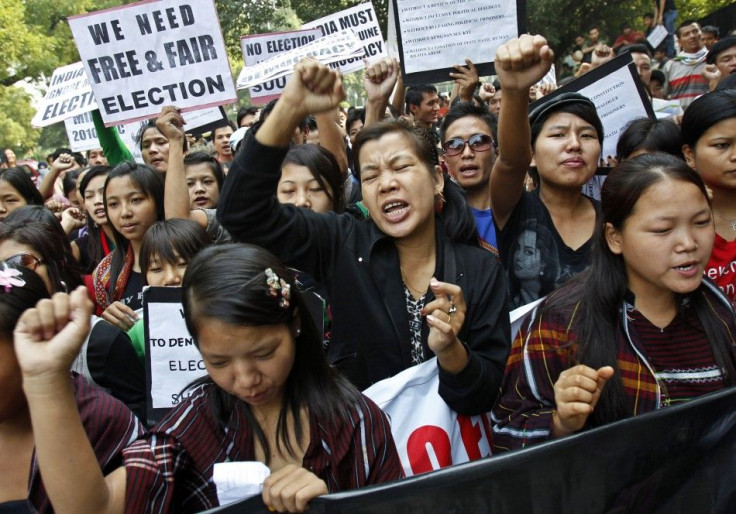Burmese President Visits India as Relations Deepen

Shortly after freeing 200 political prisoners, Burma’s president is visiting India in an effort to deepen ties between the two East Asian neighbors.
Burma, which recently put in place a nominally civilian leadership, has been gradually making some political reforms.
Prior to his arrival in New Delhi, Burmese President Thein Sein appeared at some Buddhist pilgrimage sites. He is scheduled to hold talks with senior Indian officials, including Prime Minister Manmohan Singh.
A spokesman for India’s Foreign Ministry , Vishnu Prakash, said his government is happy to extend it srelationship with Burma.
“Relationships are a process, it is a building process and I consciously did note that both in terms of content and substance and the sweep of the relationship, certainly it's an upwards trajectory, there is no doubt about that,” he said.
Prakash indicated that the two countries will become closely involved in such areas as security, trade, energy, infrastructure development, education and agriculture.
He also said that India is helping to build roads and ports in Burma, which, in turn, will help India’s remote northeastern provinces (which border Burma) transport their goods to other markets.
Meanwhile, Burma is clearly seeking to end decades of under-development and isolation.
C. Raja Mohan, a foreign policy analyst at the Center for Policy Research in New Delhi, told Voice of America: “What’s more exciting at this point, is the fact that Burma is changing. The present leader, Thein Sein, has signaled a strong commitment to reform, so things have moved fairly fast. So, as some of the constraints, the international constraints, as they get removed, then there is even greater possibility for India and Burma to cooperate.”
Burma has reportedly vowed to help India in controlling the activities of insurgent groups from northeast India who often seek sanctuary in the country.
In addition, he said the two nations aim to upgrade their bilateral trade from the current figure of $1.2 billion to $3 billion by 2015.
While most Western nations have imposed sanctions on Burma due to its long record of human rights violations, India has had relations with Rangoon since the 1990s.
However, Thein Sein’s arrival has led pro-democracy Burmese who are living in exile in India to demand that India pressure Rangoon to speed up democratic reforms.
According to E-Pao.net, a news service based in the northeastern Indian state of Manipur, which borders Burma, about 200 Burmese activist staged a rally in New Delhi demanding that Burma authorities release all political prisoners.
A memorandum presented to the Indian PM stated: “We, Burmese pro-democracy movement in India see this visit of President of Burma to India is an opportunity for India to cautiously deal with quasi-military government of Burma. The progress in bilateral relations … has been too slow and the promises repeatedly given by leaders of Burma before are not kept. So India should not make the same mistake in dealing with new administration of her east neighbor”
© Copyright IBTimes 2024. All rights reserved.











